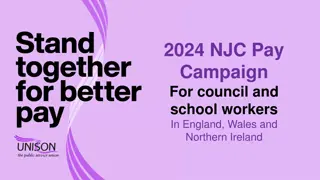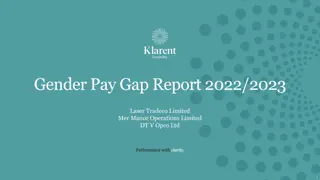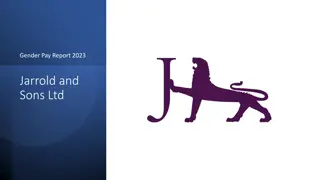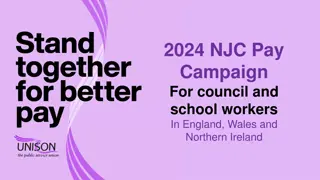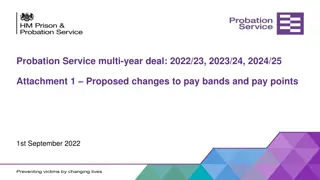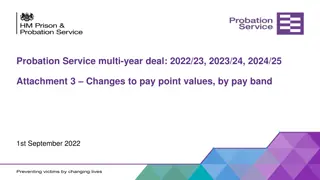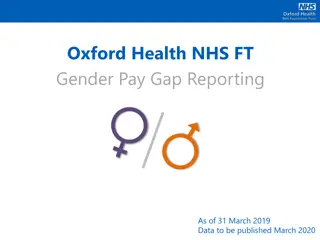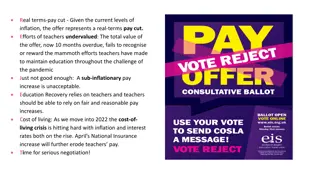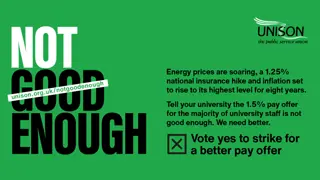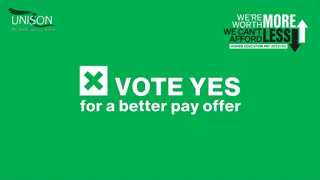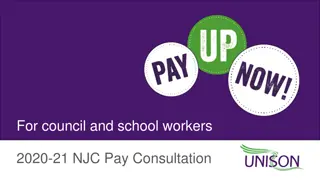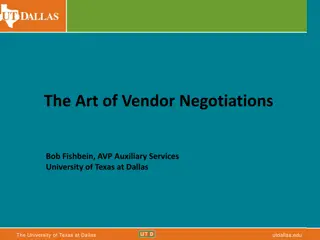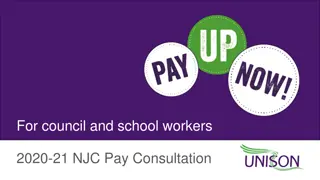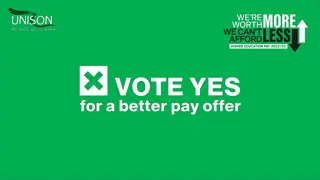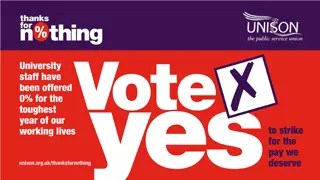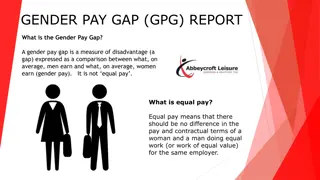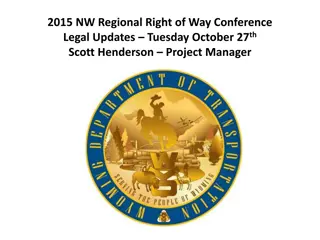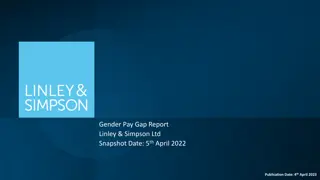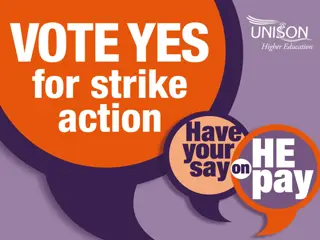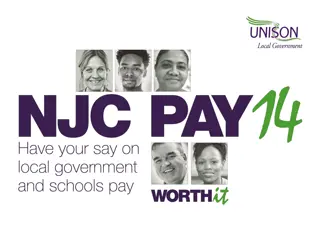Public Sector Pay Negotiations and Future Strategies
Around 5.7 million people are employed in the UK public sector, where pay constitutes a significant portion of government expenditure. Pay negotiations involve various sectors, including the armed forces, police, teachers, and NHS, with government ministers and review bodies playing key roles in determining pay awards. The negotiating dynamics are influenced by the UK Government, with recent announcements indicating a focus on fair and affordable pay rises for public sector workers. The Soulbury Committee, established in 1948, facilitates collective bargaining for advisory staff in children's services, with recent agreements reflecting incremental pay increases and calls for structural reviews.
Download Presentation

Please find below an Image/Link to download the presentation.
The content on the website is provided AS IS for your information and personal use only. It may not be sold, licensed, or shared on other websites without obtaining consent from the author.If you encounter any issues during the download, it is possible that the publisher has removed the file from their server.
You are allowed to download the files provided on this website for personal or commercial use, subject to the condition that they are used lawfully. All files are the property of their respective owners.
The content on the website is provided AS IS for your information and personal use only. It may not be sold, licensed, or shared on other websites without obtaining consent from the author.
E N D
Presentation Transcript
Pay negotiations Background and future strategy
Public sector pay negotiations Around 5.7 million people are employed in the public sector in the UK. Pay makes up around 25% of government expenditure Pay awards for about 45% of the public sector including the armed forces, the police, teachers, the Senior Civil Service and the NHS are decided by Government Ministers and based on the recommendation of eight Pay Review Bodies (PRBs). Pay awards for the Civil Service are decided by individual departments based on guidance issued by the Cabinet Office. Pay awards for local government workers are agreed in negotiations between employers and trade unions through the National Joint Council for Local Government Services. (This includes Soulbury Committee) For devolved public sector bodies, pay policy is set by the devolved administrations.
Negotiating dynamics The UK Government has an important role in setting pay for all public sector workers In some cases this is directly, such as NHS staff In some cases it is more indirect, such as with local government but is nevertheless influential. In 2020/21 the Chancellor called for a pay freeze For 2021/22 the Chancellor announced that public sector workers would receive fair and affordable pay rises
EPs and the Soulbury Committee The Soulbury Committee was established in 1948 to provide voluntary collective bargaining machinery for Soulbury Officers who are advisory staff in children's services It covers approximately 4,500 staff as of December 2018 which includes: educational improvement professionals (previously advisers and inspectors) educational psychologists young people's/community service managers (previously youth and community service officers).
Membership of Soulbury Committee Employers Side: 5 reps from Local Government Association 1 rep from the Welsh Local Government Association Officers Side: 4 reps from AEP 4 from NEU 5 from Prospect Ex officio Leader of the Officers side
2021 agreement is an increase of 1.75% on all pay points on the Educational Psychologists pay spines on 1 September 2021 (to be backdated); Further, an increase of 1.75% on all London and Fringe area allowances on 1stSeptember 2021 (to be backdated). Prospect members have voted to accept with reluctance . Called for a review of the pay structure and the role of Soulbury officers during the pandemic and beyond, with priority given to joint work on SPA points and the payment of the salaries for Trainee EPs within the Soulbury Report. On the wider local government offers, UNISON and GMB held strike ballots but did reach threshold of 50% participation. Both have now accepted the 2021 offer. UNITE are still in dispute Latest position for England and Wales
Pay in Scotland is negotiated through the Scottish Negotiating Committee for Teachers. This is a tripartite body comprising members from teaching organisations, Local Authorities, and the Scottish Government. Scotland arrangements and latest The AEP is not directly represented on the SNCT. The EIS have seats. The proposed 2021 pay deal in 2-stages comprising of 1% from April 2021; 1% from January 2022; and a 100 one-off, unconsolidated payment for all. The unions / staff side are in dispute
Northern Ireland Pay is negotiated with the Education Authority and the Department for Education What is the offer/situation ?
Looking ahead Cost of living crisis: inflation hits a 30 year-high, energy bills rising by 50%, NI contributions up 1.25%, Council Tax up, rising food bills, transport costs and other pressures. Russia s invasion of Ukraine will exacerbate, with combined impact of sanctions and supply chain disruption hitting UK economy and pushing prices up. Central and local government financially impacted by rising costs
Local Government financial context A decade of cuts to funding from central government have led to a 17% fall in councils spending on local public services since 2009 10 equal to 23% or nearly 300 per person. Councils have lost 60p in the 1 of their revenue grant . This is only partially offset by keeping a share of Business Rates , and other ringfenced or one off sources of funding Councils spending is increasingly focused on social care services now 57% of all service budgets. Councils in more deprived areas have lost more funding
Council expenditure
Influencing and engagement Develop a Toolkit for members to support engagement activity around 2022 pay negotiations and future pay including: Key messages Template letter to MP Template letter to Council Leader Social media materials Stakeholder engagement advice
Discussion? Messaging what are the most persuasive arguments for a pay rise for EPs Opportunities for working with other trade unions on a) general case for pay rise (TUC, GFTU) b) local government pay rise c) Soulbury unions


